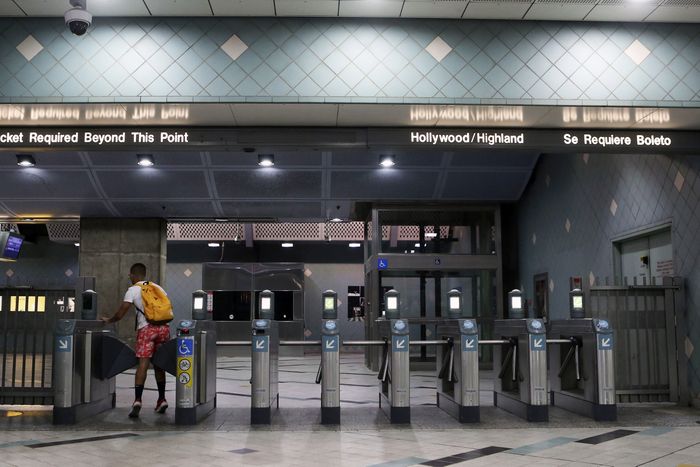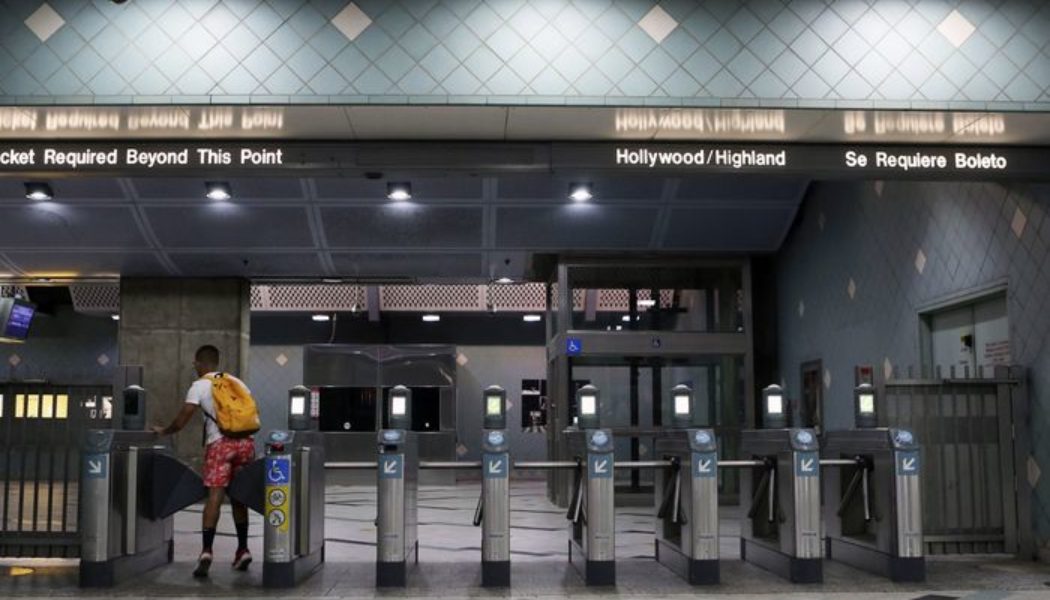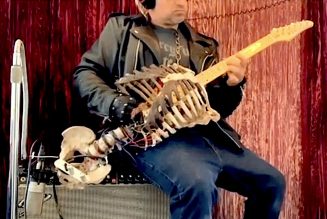
Photo: David Buchan/Shutterstock
“We are piping in classical music, you probably heard that, so we’re still evaluating that,” said Conan Cheung, chief operating officer of Los Angeles’s Metro, to a crowd of tech and mobility consultants at an “innovation forum” held earlier this month at Union Station. “It’s actually working pretty well,” he added with a chuckle, and the crowd laughed with him. The forum was ostensibly about increasing ridership on the city’s trains and buses, where numbers have plateaued at around 75 percent compared to pre-pandemic levels. But Cheung wasn’t talking about attracting commuters. The relentless rain and near-freezing temperatures over the last two months have driven people to seek shelter in the system’s underground stations, and the classical music was an effort to drive them back out. Cheung described the move as making the “system more enjoyable and comfortable for the people who use it as a transit system.” The music — described to me as “earplugs-at-a-concert loud” by one frequent commuter — is the audio version of hostile architecture, where bumpy benches and spiky surfaces are employed to keep those who have nowhere else to go out of sight.
The crisis Metro is facing is real, and it’s not just about ridership. Just in the first months of 2023, 21 people have died, mostly from overdoses, on the system. The Westlake/MacArthur Park station, just west of downtown, where classical music started playing last month, was deemed a “hot spot” by a Metro report that showed “open-air drug sales” happening on the aboveground plaza. Surveys also show that riders feel less safe riding the trains than they did before the pandemic, and women in particular are choosing not to ride because of it. Adding to the feeling of abandonment, service frequencies across the system aren’t reliable, creating long and sometimes unpredictable waits.
But many of the problems seen on transit right now are problems faced by the city at large, which is why some of Metro’s leadership have condemned the hostile audio approach. County supervisor and Metro board member Hilda Solis has asked the agency to propose “care-centered” solutions, and one member of Metro’s citizen-public-safety committee denounced the experience of the piped-in music as a “psychological torture chamber.” It also doesn’t seem to work as intended. I rode through the station the other day as the ear-splitting Vivaldi knockoff made it impossible to hear what a fellow passenger was saying, but it didn’t seem to change much about behavior in the station. People endure a lot to avoid the elements so they have a comfortable place to rest. Faux-Baroque music seems like a small annoyance in comparison.
If the question is really about improving Metro, attracting riders, and connecting people to services, there are proposals in place that have not been deployed at Guantanamo Bay. Last year, a coalition of advocates staged a community event at a Metro station to illustrate how some of the “care-centered” strategies that Solis described might look. Advocates filled a station with social workers and platform attendants, and amenities like vending and bathrooms. Over the last six months, one of the ideas proposed by these advocates has become reality: Transit ambassadors have been deployed throughout these stations, reminding people to stop smoking, connecting people with housing, and, in one instance at the Westlake/MacArthur Park station, saving the life of a person who had collapsed. But there are only 300 of them in a system with 100 rail stations; and without other interventions and improvements, they’re necessarily limited in the kind of impact they can have. Plus, it is a budget line. Blasting a wannabe Bach is free.
Meanwhile, the agency spends up to $200 million annually on three policing contracts, with no way of confirming if law-enforcement officers even ride the system, which would, at the very least, put more bodies on the platforms and trains during the times when passengers report feeling most unsafe. At a meeting last week, Metro board member James Butts, the mayor of Inglewood and a former chief of police, said he was “appalled” by data in a recent audit that showed the vast majority of sheriff’s deputies assigned to the system were in patrol cars instead of on trains. (Asked about this disconnect, Metro’s chief safety officer said police had explained to her that “they weren’t going to have a bus company tell them how to deploy their resources.”) The officers I saw at the Westlake/MacArthur Park Station weren’t on the trains or the platforms, either. Instead, they were standing near the ticketing area or aboveground — the music is much quieter there.









